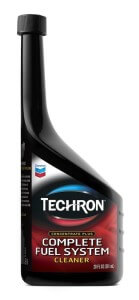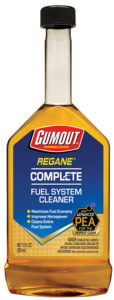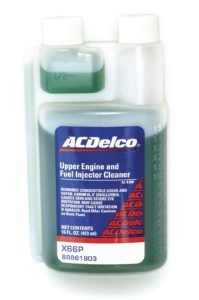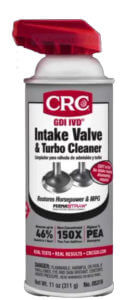Do engine additives work?
Which engine additives work?
If you look at the shelves at any auto parts store you’ll see lots of products that promise to improve gas mileage and performance. But do those engine additives work? If your engine is in good condition, no. They’re a waste of money. But if your engine isn’t in good condition, a few do work. Let’s take a look at which engine additives work.
Do fuel injector and fuel system cleaners work?
If you’re filling your car or truck with Top Tier gas, you’re already getting the same or better fuel system cleaners than you can buy off the shelf. If you’re getting good performance from your engine, adding a fuel injector cleaner is a waste of money.
However, if you are concerned about engine performance; if you’re having lack of power, hard starting after shutting down the engine, or hard starting when cold, then it’s worth it to try a fuel injector or fuel system cleaner.
Which fuel injector or fuel system cleaners actually work?
My personal recommendation is to skip the Seafoam, Lucas and  Royal Purple fuel system cleaners and stick with products that contain either P.E.A. (polyetheramine) or PIBA (polyisbutylamine). Those two cleaners are proven to clean fuel injectors and are the products used in Top Tier gas.
Royal Purple fuel system cleaners and stick with products that contain either P.E.A. (polyetheramine) or PIBA (polyisbutylamine). Those two cleaners are proven to clean fuel injectors and are the products used in Top Tier gas.
Chevron Techron
Gummout

Here’s why I don’t recommend Seafoam to clean your engine
Which air induction cleaners actually work?
In a gasoline direct injection engine (GDI), the fuel injectors deliver fuel directly into the combustion chamber. That’s a different delivery system than port fuel injection. In a port fuel injection system, the injectors spray gasoline into the valve opening, so gasoline and the cleaning agents constantly wash the back of the valves. That doesn’t happen in a GDI engine.
When a GDI engine shuts off, hot combustion vapors  can cause carbon deposits on the valves and that carbon can cause performance issues. Since gas doesn’t wash the back of the valves, you may need to clean them using an air induction cleaner.
can cause carbon deposits on the valves and that carbon can cause performance issues. Since gas doesn’t wash the back of the valves, you may need to clean them using an air induction cleaner.
 In an air induction cleaning process you spray the cleaner directly into the airstream, making sure you spray through the MAF sensor. That’s the only way to get the cleaner onto the back of the valves. After spraying, you shut off the engine and let it soak for a while. Follow the instructions on the product.
In an air induction cleaning process you spray the cleaner directly into the airstream, making sure you spray through the MAF sensor. That’s the only way to get the cleaner onto the back of the valves. After spraying, you shut off the engine and let it soak for a while. Follow the instructions on the product.
Here are the two air induction cleaners I recommend.
GM’s Top Engine cleaner (ACDelco Upper Engine & Fuel Injector Cleaner 88861803 –CLEANER).
CRC’s Intake Valve and Turbo Cleaner.
For more information on air induction cleaning, see this post
Do engine flush additives work?
Engine flush additives can be helpful if you have an oil sludge problem that was caused by a failed crankcase ventilation issue. But if your sludge was caused due to lack of oil changes, performing an engine flush can do far more harm than good. I only recommend engine flushes if very rare cases. You should never perform an engine flush as routine maintenance.
For more information on engine flushing, see this post
Do oil additives work?
No, they don’t (with one exception). They are a complete waste of money. They will not improve performance or mileage. They work only to enrich the companies that make this snake oil.
But there is one exception. If you have an older (80’s or older) engine with high friction flat tappet valve lifters, you might want to add a ZDDP (zinc dialkl dithiophosphate) additive.
NEVER use a ZDDP additive in a newer engine; they can damage your catalytic converter.
AND, never use any oil additive that contains Teflon; they can plug small oil passages.
Does head gasket sealer work?
For very small leaks, head gasket sealers work about 50% of the time. But if your head gasket leak problem started because your engine overheated, don’t waste your money, 95% of the time they won’t stop that kind of head gasket leak.
For more information on head gasket sealers, see this post
Do radiator stop leak products work?
Sometimes, but only if your follow the manufacturer’s recommendations TO THE LETTER. The biggest problem with radiator and heater core stop leak products is when DIYers think that “more is better.” If you add too much sealer, you will clog the tiny passages in the heater core and cause far worse problems.
For more information on stop leak products, see this post
©, 2018 Rick Muscoplat
Posted on by Rick Muscoplat
